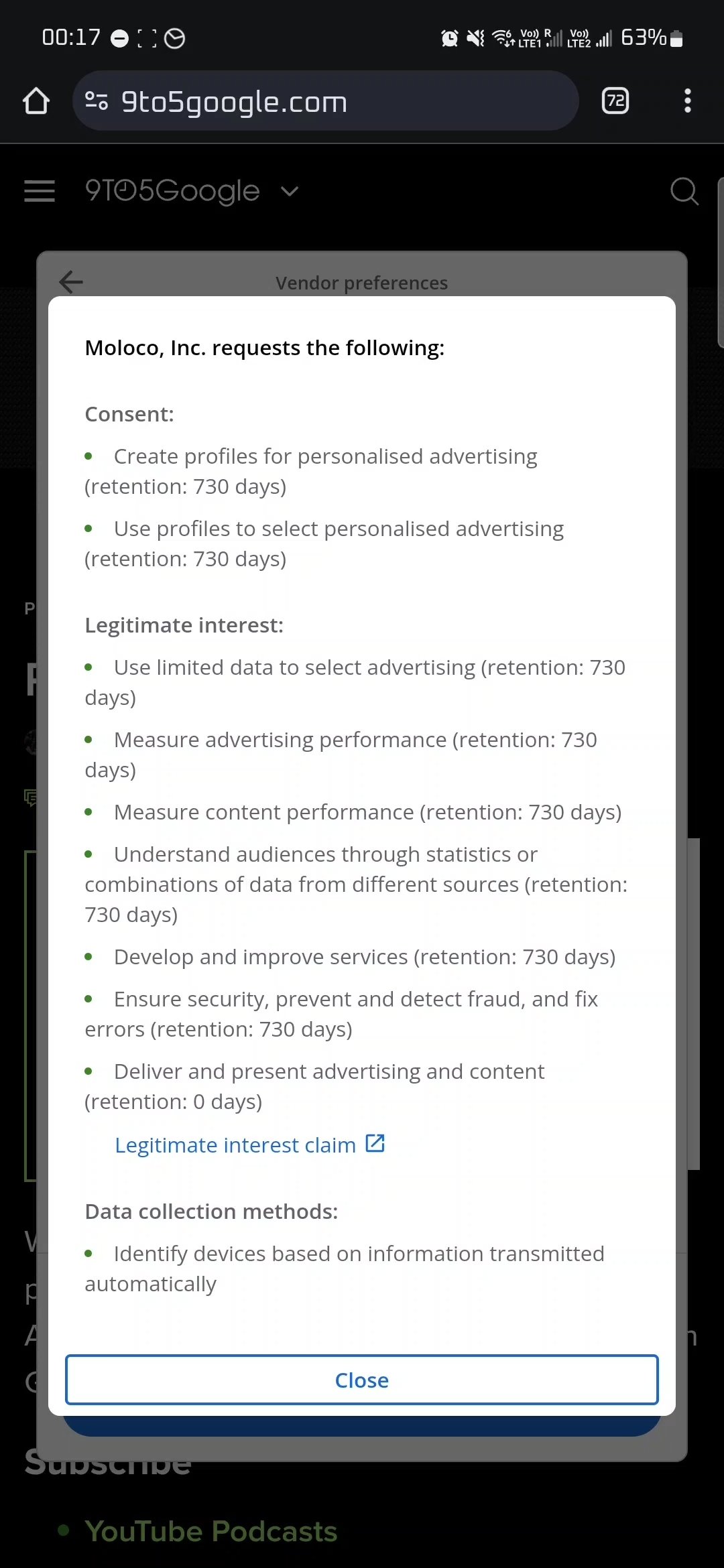I never consent to give my data away or being tracked, but how do you deal with so called legitimate interest? I tried several times to untick them but it is a long list (in fact at the bottom there is a “vendors” link with even longer, much longer list. It took me 10 minutes to get to the bottom of it once).
My questions:
-how can we trust these so called legitimate interests when they are self defined by companies whose business model relies on your data?
-how can we find out what these legitimate interests are and what data it collects?
-are such companies controlled in any way?
-is this kind of consent form compliant with EU gdpr? (normally opt out is to be as easy as opt in, and there is no “refuse all” for these so called legitimate interests).
-what are your strategies against such sites tracking you? Or am I just being paranoid?
The sheer amount vendors is daunting, the Internet really turned into crap
Edit: when clicking Preferences at the bottom the content of the legitimate interested is spelled out for each vendor, so this replies one of my questions.

Just autowipe cookies on pageloads. Use fast rotating vpn, tunnel through tor twice, run computer in ram only, remove all storage devices.
Amateur advice. Don’t own your own device. ask your friends to look up things for you on their devices, then print them out and mail them to your PO Box. Untraceable.
IANAL, but iirc if you’re in the eu, legitimate interest is not legal basis for data processing but they may still store it for later use if you ever agree to one of these
I am like 90% sure they use it regardless.
Legitimate interest is a way for the vendors to not need your confirmation. In general, your right to privacy is valued against the vendor’s right to operate. The most often used example is advertisement: in general, vendors are allowed to advertise, as they want to operate and sell their products. But you have a right to your data (e.g. mail adress, home adress, interests…). So courts have to value what is more important. Another example that most people would agree is that clubs want to show what happens in the club, so they publish pictures from their activities (interest of club to show they are active vs personal right to your image). As not every case goes to court, most vendors see their interest as more important and interpret “legitimate” interest rather loosely. So in general, the idea of legitimate interest is compliant with the GDPR, although I believe most sites use it too liberal.



